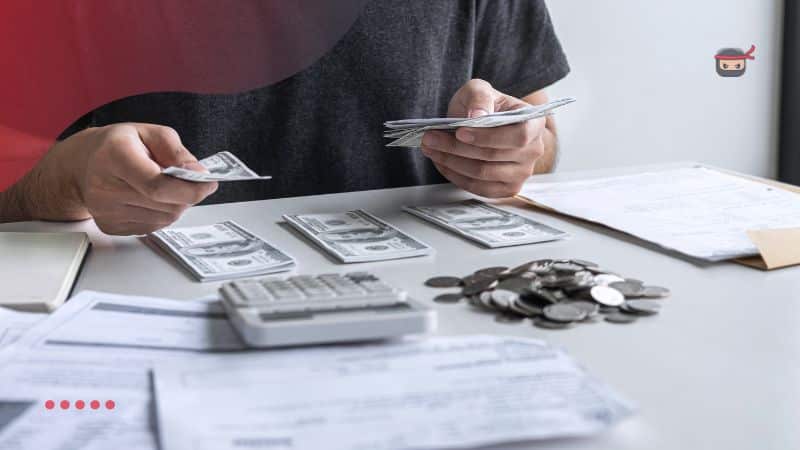How to manage credit card debt is a question that weighs heavily on the minds of many individuals who find themselves struggling with financial obligations. In today’s fast-paced world, the convenience of using credit cards often leads to the accumulation of debt, which, if not managed properly, can spiral out of control.
This debt can quickly become overwhelming, leading to stress, anxiety, and even impacting one’s overall quality of life. However, it is important to remember that credit card debt, while challenging, is not insurmountable.
With the right strategies and a disciplined approach, you can take charge of your financial situation and work toward reducing, or even eliminating, your debt. This article will provide you with a comprehensive guide on how to manage credit card debt, offering practical advice and steps that you can implement immediately to regain control of your finances.
Whether you’re dealing with a small balance or a significant amount of debt, the methods discussed here can help you create a clear and effective plan to achieve financial freedom.
Understanding Your Credit Card Debt
Before diving into solutions, it’s crucial to have a clear understanding of your current credit card debt. Start by listing all your credit cards, including the balance on each card, the interest rates, and the minimum payments. This process will give you a full picture of what you owe and help you prioritize which debts to tackle first.
1 – Creating a Budget
How to manage credit card debt effectively begins with the essential step of creating a budget. A well-structured budget serves as the foundation for any debt management plan, providing a clear overview of your income and expenses, and helping you allocate resources where they are most needed.
Without a budget, it’s easy to lose track of spending, inadvertently allowing debt to grow unchecked. Therefore, taking the time to create a detailed and realistic budget is crucial for gaining control over your finances.
To start, gather all your financial statements, including pay stubs, bank statements, and credit card bills. Begin by listing all sources of income, such as your salary, freelance work, or any side jobs.
Next, categorize your expenses into fixed costs, like rent or mortgage payments, utilities, and insurance, and variable costs, such as groceries, entertainment, and dining out. Don’t forget to account for periodic expenses like car maintenance or annual subscriptions, which can often be overlooked.
Once you have a clear view of your income and expenses, it’s time to identify areas where you can reduce spending. This might involve cutting back on non-essential expenses, such as eating out less frequently, canceling unused subscriptions. Or finding more affordable alternatives for certain services. Every dollar saved can be redirected toward paying down your credit card debt. Bringing you one step closer to financial freedom.
How to manage credit card debt also involves setting realistic financial goals within your budget. Determine how much you can afford to pay toward your credit card debt each month without jeopardizing your ability to cover essential living expenses. It’s important to strike a balance between aggressive debt repayment and maintaining a sustainable lifestyle.

2 – Prioritizing Debt Payments – How to Manage Credit Card Debt
How to manage credit card debt effectively involves not only creating a budget but also prioritizing which debts to pay off first. This step is crucial because it determines how quickly you can reduce your overall debt burden and improve your financial situation. With a clear strategy in place, you can make significant progress toward becoming debt-free, which is one of the best ways to improve credit score.
To begin with, it’s important to understand that not all debts are created equal. Some credit card balances may carry higher interest rates, while others might have lower balances that can be paid off more quickly.
Consequently, deciding which debts to tackle first requires a thoughtful approach. One popular method is the debt snowball method, which involves paying off your smallest debts first.
The advantage of this approach is that it provides quick wins. Giving you a sense of accomplishment and motivation to continue paying off larger debts. As you eliminate smaller debts, you free up more money to apply toward your remaining balances.
On the other hand, another effective strategy is the debt avalanche method. With this method, you focus on paying off debts with the highest interest rates first. While continuing to make minimum payments on the others. This approach can save you money in the long run by reducing the amount of interest you pay over time.
Moreover, when considering how to manage credit card debt, it’s essential to weigh the benefits of each approach against your personal financial situation. For instance, if you’re motivated by quick wins and need that psychological boost to stay on track. The debt snowball method might be more suitable.
3 – Negotiating with Creditors – How to Manage Credit Card Debt
How to manage credit card debt effectively includes a crucial step that many people overlook: negotiating with creditors. While it may seem daunting, reaching out to your credit card companies to discuss your financial situation can lead to more manageable repayment terms.
To start, it’s essential to approach the negotiation process with a clear understanding of your financial situation. Before contacting your creditors, review your budget and determine what you can realistically afford to pay each month. This will provide you with a solid foundation during your discussions.
Additionally, it’s important to be honest and upfront about your financial difficulties. Creditors appreciate transparency, and by clearly explaining your situation. You may be able to negotiate lower interest rates, a reduced balance, or a more flexible payment schedule.
Moreover, there are several options you can explore during these negotiations. One possibility is to request a lower interest rate. Reducing your interest rate can significantly decrease the total amount you pay over time. Making it easier to manage your debt. Another option is to ask for a temporary forbearance or hardship plan. Which might allow you to pause or reduce your payments for a certain period.
Additionally, if you feel uncertain about negotiating on your own, consider seeking assistance from a credit counseling agency. These organizations can negotiate on your behalf and help you develop a manageable repayment plan.
Just make sure to choose a reputable agency, preferably one affiliated with the National Foundation for Credit Counseling (NFCC) or the Financial Counseling Association of America (FCAA). These agencies adhere to strict standards and can provide you with trustworthy advice and support. For more information, you can visit the official NFCC website at (www.nfcc.org).
4 – Considering Debt Consolidation
How to manage credit card debt can also involve exploring the option of debt consolidation. For individuals juggling multiple credit card balances, debt consolidation can be an effective way to simplify payments and potentially reduce the overall cost of your debt.
This strategy involves combining all your outstanding credit card balances into a single loan or payment, ideally with a lower interest rate. By consolidating your debt, you can streamline your finances. Making it easier to manage your monthly payments and stay on top of your repayment plan.
To begin with, it’s important to understand how debt consolidation works. There are several methods you can consider, including personal loans, balance transfer credit cards, and home equity loans. Each option comes with its own set of advantages and potential drawbacks. So it’s crucial to evaluate which one best suits your financial situation.
For instance, a personal loan from a bank or credit union can provide a fixed interest rate and a set repayment term, giving you predictable payments over time. Alternatively, a balance transfer credit card may offer a low or 0% introductory interest rate. Allowing you to pay down your debt faster without accruing additional interest.
Furthermore, when considering debt consolidation, it’s vital to carefully compare interest rates. Fees, and terms across different lenders or credit card offers. A lower interest rate can save you a significant amount of money in the long run. But only if you’re disciplined about making your payments on time.
Missing payments or failing to pay off the balance within the promotional period can lead to higher interest rates and more debt, negating the benefits of consolidation. Additionally, some debt consolidation loans may come with origination fees or other charges that could offset the savings from a lower interest rate.
Advantages of Managing Credit Card Debt
Taking control of your credit card debt is not just about reducing what you owe; it’s about setting the stage for a more secure and prosperous future. By understanding and acting on the benefits of debt management. You can transform your financial situation and unlock opportunities that were previously out of reach.
To begin with, one of the most immediate advantages of managing credit card debt is the improvement in your credit score. As you pay down your balances, your credit utilization ratio decreases. Which is a key factor in determining your credit score.
A lower utilization ratio signals to lenders that you are managing your credit responsibly. Which can lead to better terms on future loans and credit cards. This improved credit score can open doors to lower interest rates on mortgages, auto loans, and other types of credit. Ultimately saving you thousands of dollars over time.
Furthermore, effectively managing your credit card debt can significantly reduce the amount of stress and anxiety associated with financial insecurity. Debt can be a heavy burden, leading to constant worry about making payments, accumulating interest. And the potential consequences of falling behind.
By taking steps to manage your debt, you can alleviate this stress and regain a sense of control over your financial life. This reduction in stress can have positive effects on your mental and physical health. Allowing you to focus on other important aspects of your life. Such as career development, family, and personal well-being.
Conclusion
In conclusion, as we have explored throughout this article, there are multiple strategies and approaches to effectively manage and reduce your debt. Each step, from understanding your debt to creating a budget, prioritizing payments, negotiating with creditors. Considering debt consolidation, and recognizing the advantages of debt management. Plays a crucial role in achieving financial stability.
In the journey to manage your credit card debt, it’s important to remember that progress may be gradual. But every small step counts. The key to success lies in consistency, discipline, and a willingness to make necessary changes to your financial habits. Whether you are just beginning to address your debt or are already on your way to paying it off, the strategies discussed here can help you navigate the process with confidence.
Moreover, effectively managing your debt is not just about the immediate benefits, such as reducing your financial burden and improving your credit score. It’s also about building a strong financial foundation that will support you in achieving your long-term goals. Whether that’s buying a home, saving for retirement, or simply enjoying a debt-free life. By taking control of your credit card debt, you are investing in your future, ensuring that you have the financial freedom to pursue your dreams without the constant pressure of debt.
Additionally, managing your credit card debt offers a profound psychological benefit. The relief and peace of mind that come from knowing you are on a clear path to financial freedom cannot be overstated. It allows you to focus on other important areas of your life. Free from the constant worry about how to make ends meet or what might happen if an unexpected expense arises.

